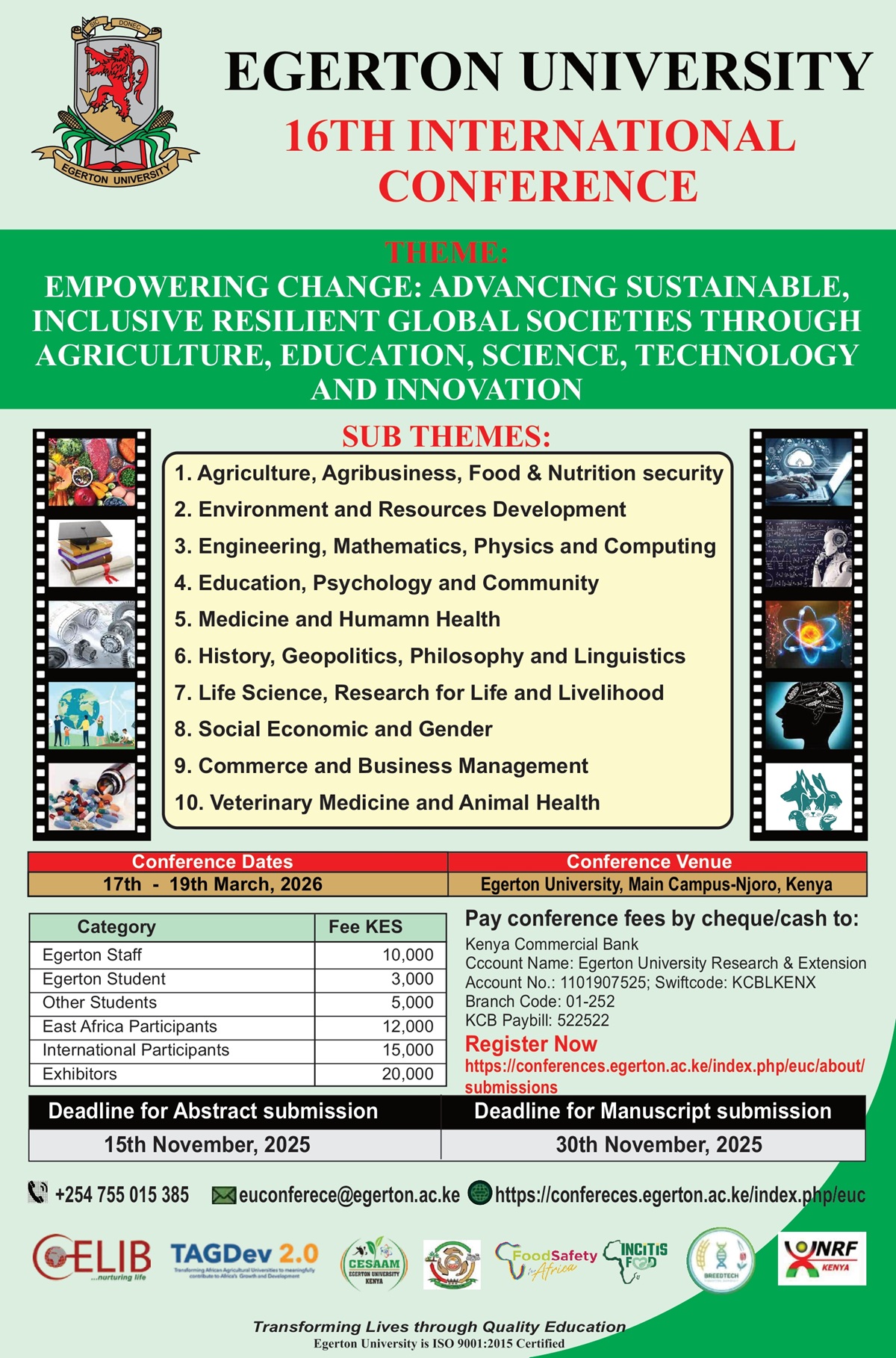Prof. Julius Kipkemboi is an Associate Professor, Department of Biological Sciences and Director Income Generating Units at Egerton University.
He holds a BSc in Botany/Zoology from Egerton University, Kenya, a Master of Science in Environmental Science and Technology from IHE Delft, The Netherlands, and Ph.D. in Environmental Resources from UNESCO-IHE Institute for Water Education/Wageningen University, The Netherlands.
Previously, he has served as Acting Deputy Vice Chancellor Academic, Student Affairs and Research at Kaimosi Friends University (August 2022 – May 2025). He also served as the Deputy Principal Academic and Student Affairs (August 2021 – July 2022). Prior to this, he served in various teaching and administrative positions at Egerton University.
Currently, he is a member of the National Scientific and Ethics Committee at the National Commission for Science, Technology and Innovation in Kenya (NACOSTI). He was the representative for Kenya at the UNESCO Executive Board from 2019 to 2022.
Prof. Kipkemboi has been involved in several local and international collaborative and multidisciplinary research projects. Currently, he is in climate change and transformative pathways research.
He has won scholarships and grants such as NFP fellowships, Marie Curie Individual Fellowship Programme and International Foundation for Science grant.
He has supervised and examined several undergraduate and postgraduate students and has contributed to global scientific knowledge platform through scientific publications.
Apart from contributing to community activities such as Ecosystem rehabilitation and Science and Engineering Fair for high schools in Rift Valley among other activities, he is also a member of Eastern Africa Water Association, Society of Wetland Scientists, Bioethics Society of Kenya and Red-Cross Society of Kenya.

